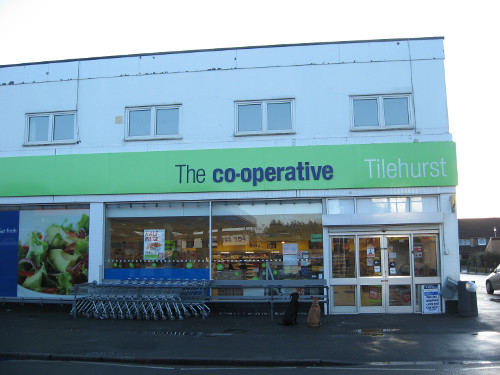The decision follows an earlier move in to stop selling Russian products after the invasion of Ukraine.
The Co-op has officially joined a number of global brands boycotting Israel, following a vote by its members calling for the supermarket to demonstrate “moral courage and leadership” by removing Israeli goods from its shelves. The Co-op Group board approved a policy banning the sourcing of products from 15 countries, including Israel, Iran, Russia, Syria, Myanmar, Afghanistan, and Belarus, nations it says are responsible for “internationally recognised” human rights violations and breaches of international law.
This decision follows a move in March 2022 to stop selling Russian products after the invasion of Ukraine.
Known for its commitment to ethical business practices, including supporting Fairtrade and local community initiatives, the Co-op stated that the new policy will apply both to whole products and to ingredients used in its own-brand lines. The financial impact is expected to be minimal, as the vast majority of the Co-op’s supply chain is based in Western Europe.
Debbie White, chair of the Co-op Group board, described the move as “a clear demonstration of our co-operative values in action, where the voices of our members have been listened to and then acted upon.”
“We are committed, where we can, to removing products and ingredients from our shelves which are sourced from those countries where the international consensus demonstrates there is not alignment with what happens in those countries and our co-operative values and principles,” she said.
Other major brands taking similar action
The Co-op joins a growing number of global brands distancing themselves from Israel over its treatment of Palestinians and the ongoing conflict.
Orange
In 2015, French telecom giant Orange cut ties with Partner, its Israeli licensee, after concerns over its presence in illegal settlements. Partner had installed more than 100 telecommunications antennas on confiscated Palestinian land and operated stores within Israeli settlements.
Veolia
Also in 2015, French utilities company Veolia divested from all Israeli operations, including the controversial Jerusalem Light Rail (JLR), which facilitates the expansion of settlements in occupied East Jerusalem. Veolia sold its stake in the JLR and exited the Israeli market entirely.
Itochu Corporation
In February 2024, Japan’s Itochu Corporation ended its strategic partnership with Israeli defense firm Elbit Systems. The move followed the ruling by the International Court of Justice (ICJ) ordering Israel to take measures to prevent acts of genocide in Gaza and better protect civilians.
Shein
In May 2024, the Chinese fast fashion retailer Shein displayed a Palestinian flag on its website in a gesture of solidarity. The move sparked backlash in Israel, leading to a boycott of the platform and the subsequent suspension of free shipping to the country.
BDS movement gains momentum
Meanwhile, the Boycott, Divestment and Sanctions (BDS) movement, which was launched in 2005 by over 170 Palestinian civil society organisations, continues to gain momentum. It calls for economic and cultural pressure on Israel to end what it describes as apartheid, military occupation, and settler-colonialism.
In the UK, the Palestine Solidarity Campaign (PSC) runs the ‘Boycott Barclays’ campaign, which calls on customers to close their accounts in protest of the bank’s investments in arms companies supplying weapons to Israel.
Another initiative, ‘Don’t Buy Apartheid,’ urges consumers, businesses, cafés, and restaurants to avoid purchasing Israeli produce and to boycott companies like Coca-Cola, which BDS claims are linked to the occupation.
The movement also targets several multinational corporations for their alleged complicity. These include Hewlett-Packard (HP), which provides technology services to Israeli prisons accused of detaining Palestinians in inhumane conditions; AXA, an insurance company with financial ties to Israeli banks involved in illegal settlement construction; AHAVA, a cosmetics brand operating from an Israeli settlement in the occupied West Bank; Sabra, a food company partially owned by an Israeli firm that supports the Israeli military; and McDonald’s, whose Israeli franchise has reportedly provided free meals to Israeli soldiers.
Left Foot Forward doesn’t have the backing of big business or billionaires. We rely on the kind and generous support of ordinary people like you.
You can support hard-hitting journalism that holds the right to account, provides a forum for debate among progressives, and covers the stories the rest of the media ignore. Donate today.




